Welcome Tullo Ndunda, Our New Business Development Associate
We’re excited to announce that we’ve hired a new business development associate, Tullo Ndunda.
Tullo has been in the tech space since 2007, and his skillset lies at the intersection of technology, people, and business. He’s worked for companies like IBM, Kenya Airways, ModusBox (now Infitx), and Mowali in a variety of roles including sysadmin, security, service management, service delivery, and technical operations.
Before he becomes too busy, we spoke with him about returning to Mojaloop (read on to learn about his history with us).
Connect with Tullo on LinkedIn >
How did you become interested in the Mojaloop Foundation and its mission?
I was invited to join the first large-scale Mojaloop project, known as Mowali, which was the first privately run deployment in West Africa.
I was supposed to do service management, but at that point, Mojaloop was still in a very fast development phase, and I found myself in the development cycle. I got back in as a product was being developed, helping figure out how to deploy it, onboard digital financial service providers (DFSPs), and run the switch from a hub operations perspective.
I’m Kenyan and we have a very huge success story with mobile money. But if you missed out on it, you’re always looking for the next big revolutionary technology. When I saw Mojaloop, I thought, “This is it,” because it takes mobile money to the level of making it affordable to the man on the street.
Being part of a Level One Project, built for the common good, exercises my professional curiosity while fulfilling my desire to help social advancement. Someday I want to look back and say I earned my income, but also that I’ve been a part of creating something helpful. It’s a privilege to be part of this journey.
Tell us about your role as business development associate. What will your main responsibilities be?
At the Foundation we have a go-to-market team with a very clear mandate of building adoption and operation at the country level.
My scope will include market cultivation and introducing the operators to Mojaloop, helping them understand it, and bringing a proof of concept project to a point where they can make a decision about deploying it commercially.
One of the key things will be creating relationships and maintaining those relationships, especially with potential DFSPs that are going to onboard to those hubs.
What are you looking forward to most about your role and what do you hope to accomplish?
One of the things I will always love about engaging customers is demystifying systems and training them in a way that everybody understands the principles behind them. I’m looking forward to seeing the DFSPs and the operators understand the potential of Mojaloop and to answering all the questions they might have.
I’m hoping to build a larger community of people who appreciate it and are eager to implement and own it.
In your opinion, what have been the Foundation’s most significant accomplishments to date?
I feel strongly that one of the biggest things the Foundation has done is build a Community around Mojaloop. If you went to the meetings when we started off, it was a few organizations like Ripple, Coil, and Infitx. Now, you see a very wide array of potential from all countries. For example, I went to a convening in Arusha, Tanzania and we had some university students there. By the end of that meeting those guys could run their mini loop and deploy it.
I feel like Mojaloop has really arrived where it was meant to be because now you have the countries that need to adopt it getting involved in the Community. I think that’s a major, major achievement.
Also when we started, we had a very big West African contingent. East Africa is home and I want to do projects here in Kenya, Tanzania, Uganda, Zambia, Rwanda, or Burundi. That would make me proud — that it’s actually being used here.
What do you consider to be the biggest challenge in the digital payments landscape?
I think establishing collaboration around the rules and the rails is a major blocker, and I hope that’s what Mojaloop will overcome.
Separation between collaboration and competition has not been very clear in payments because companies are interested in making a profit. It’s been more on the competitive side, so everybody has built their own system, which is expensive for DFSPs to join, and in turn, they have to charge users more. These systems have lost the whole idea of lowering the cost.
I think by using the Level One principles, Mojaloop solves this problem.
What keeps you excited and motivated to help further the Foundation’s mission? In other words, what gets you out of bed in the morning?
The fact that I’m part of an unquantifiably bigger picture. I’m excited by the fact that we don’t know exactly how wide this is going to reach when it reaches cruising altitude.
It’s also about being part of a legacy-making team that is going to help people understand, adopt, and contribute to the common good in the society that I belong to. Mojaloop is for people like my parents, and my neighbors. It’s not just for people “out there somewhere.” Contributing to that is really encouraging.
Is there anything else you’d like to share with us?
I think the strategy of bringing in accelerators and widening the space for adopters has been brilliant.
The efforts that have gone into making Mojaloop Community-owned and the concept of bringing in people at every level is where inclusivity starts. If the approach to the market is not inclusive, we would not be able to say that we have an inclusive solution. But Mojaloop has everyone from big systems integrators like Infitx to small players like university students. It’s really a dream come true.

